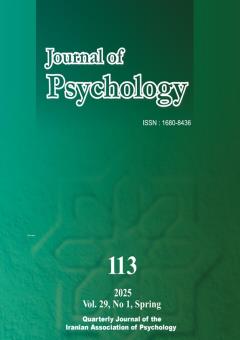Psychological predictors and consequences of internet addiction
Subject Areas : PsychologyMarjan Fariddanesh 1 , Alimohammad Rezaei 2
1 - Department of Psychology, Semnan Branch, Islamic Azad University, Semnan, Iran
2 - Department of Educational Psychology, Faculty of Psychology and Educational Sciences, Semnan University, Semnan, Iran
Keywords: Self-control, Self-efficacy, self-esteem, Internet addiction, Sleep quality, Psychological distress, Psychological well-being,
Abstract :
The purpose of this research was to investigate the predictors (self-control, self-efficacy and self-esteem) and psychological consequences of Internet addiction (sleep quality, psychological distress and psychological well-being). For this purpose, a descriptive-correlational research method was employed. All student users of social networks at Damghan University in year 2023 constituted the statistical population of the current study.Using available sampling, 298 people were selected and answered research tools including Young Internet Addiction Test, Pittsburgh Sleep Quality Index, Rosenberg Self-Esteem Scale, Sheerer General Self-efficacy Scale, Tangy Brief self-control scale, Ryff Psychological Well-being Scales and Kessler Psychological Distress Scale. After data collection, partial least squares test was run in PLS to analyze the data. The results represented a negative relationship between self-control and internet addiction. Internet addiction directly affected sleep quality and self-esteem. Furthermore, internet addiction indirectly affected psychological well-being through the mediation of sleep quality and psychological distress. Accordingly, it can be claimed that weakness in self-control may lead to internet addiction, which brings about decreased sleep quality, increased psychological distress, and reduced psychological well-being. Based on the findings, one can help with the better preparation and presentation of prevention and treatment programs by strengthening self-control for the ones exposed to internet addiction. In this way, internet addiction, sleep quality, and mental distress can be mitigated and, thereby, cognitive and psychological well-being may be improved.
